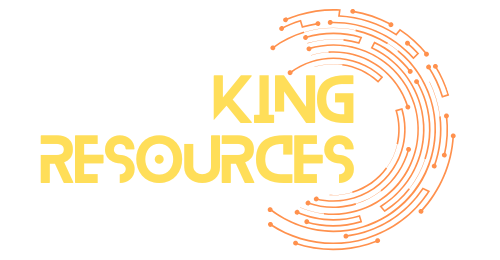Investing in a vacation home can feel like a dream come true, but what if that dream turns into a financial nightmare? Picture this: you sip a piña colada on your sun-soaked deck, but the thought of your investment sinking faster than a beach ball in a tidal wave keeps you awake at night. Understanding vacation home ROI isn’t just a buzzword; it’s the key to making sure your slice of paradise pays off.
Table of Contents
ToggleUnderstanding Vacation Home ROI
Investing in a vacation home requires a solid understanding of return on investment (ROI) and its implications. Knowing how ROI impacts financial outcomes helps investors make informed decisions.
What Is Vacation Home ROI?
Vacation home ROI represents the profits generated from property investment compared to the costs incurred. Calculating ROI involves factors like rental income, appreciation in property value, and maintenance expenses. For example, if a vacation home generates $20,000 in rental income and incurs $10,000 in expenses, the ROI would be 100%. Investors assess these figures to gauge the property’s performance and make strategic improvements as needed.
Importance of Calculating ROI
Calculating ROI is crucial for identifying the viability of a vacation home investment. Investors unlock insights into financial benefits and opportunities for growth by understanding ROI. Adequate calculation helps in comparing potential vacation homes, highlighting which property offers superior profitability. Investors also minimize risks by making calculations that reveal possible returns. Additionally, regular ROI assessments guide owners in optimizing rental strategies to maximize income while controlling costs.
Factors Influencing Vacation Home ROI
Several key elements impact the return on investment for vacation homes. Understanding these factors is crucial for maximizing profits from rental properties.
Location
Location plays a significant role in determining ROI. Properties near popular tourist attractions often generate higher rental income. Access to amenities like beaches, restaurants, and cultural sites can also enhance desirability. Proximity to public transportation increases convenience for guests. Areas with strong demand historically show better appreciation rates, boosting long-term returns. Investing in emerging destinations can offer substantial growth potential since those markets may be less saturated.
Property Type
Property type affects ROI calculations significantly. Single-family homes typically attract families, securing longer rental periods. Condominiums often provide lower maintenance costs but might incur HOA fees. Luxury properties may command higher nightly rates while sitting idle between high seasons. Each type appeals to different demographics, influencing occupancy rates and rental income. Investors should assess the target market’s preferences to choose suitable property types for optimal returns.
Market Trends
Market trends shape the investment landscape in crucial ways. Seasonality impacts rental income, reflecting peak tourist periods. Economic indicators such as employment rates and consumer spending often signal market stability. Keeping an eye on housing supply and demand can reveal potential appreciation or depreciation. Regional trends, including changes in tourism patterns or emerging local attractions, can indicate future profitability. Investors should analyze both current and projected trends to inform their investment decisions effectively.
Strategies to Maximize Vacation Home ROI
Maximizing vacation home ROI involves strategic decisions regarding marketing, management, and property enhancements. Investors can implement several effective strategies to boost their returns.
Effective Marketing Techniques
Effective marketing techniques attract renters and enhance visibility. Utilize high-quality photography to showcase the property’s best features. Highlight unique amenities and the surrounding attractions in property descriptions. Leverage online platforms, such as Airbnb and VRBO, to reach a wider audience. Engage in social media marketing, sharing captivating images and local experiences. Offering promotions during off-peak seasons can also increase bookings, driving rental income. Regularly updating listings keeps them fresh and relevant in a competitive market.
Property Management Options
Property management options streamline operations and enhance guest satisfaction. Engaging a professional management company can ensure top-notch service and consistent maintenance. This approach relieves owners of day-to-day responsibilities, allowing focus on strategic decisions. Alternatively, self-management enables direct control over rental practices and operations. Utilizing property management software can simplify booking, communication, and financial tracking. Regardless of the choice, ensuring a responsive and efficient management style significantly impacts guest experiences, leading to repeat bookings and positive reviews.
Common Mistakes to Avoid
Investing in a vacation home comes with challenges. Understanding common pitfalls can enhance ROI.
Overestimating Rental Income
Many investors assume high rental prices based on desirable location. They often overlook the competition in the area, which may drive prices down. Setting realistic expectations based on local market rates is crucial. Ignoring seasonal fluctuations can also lead to financial disappointment. Researching occupancy rates in similar properties provides valuable insight. Properties vacant during off-peak seasons reduce overall profits significantly. Calculating average rental income accurately ensures informed investment decisions.
Ignoring Maintenance Costs
Property upkeep is essential for maintaining appeal. Investors sometimes underestimate ongoing maintenance expenses, which may impact profit margins. Neglecting repairs can result in decreased rental demand or lower property value. Budgeting for regular maintenance prevents unexpected financial strain. A comprehensive plan that includes landscaping, plumbing, and electrical work is necessary. Proactive measures protect the property and enhance guests’ experiences. Setting aside funds for emergencies can alleviate future financial burdens and ensure stability.
Conclusion
Investing in a vacation home can be a rewarding venture when approached with careful consideration. By understanding the factors that influence ROI investors can make strategic choices that enhance profitability.
Focusing on location property type and market trends allows for informed decisions that align with personal and financial goals. Effective marketing and management strategies also play a crucial role in attracting renters and maximizing income.
Avoiding common pitfalls such as unrealistic income projections and neglecting maintenance ensures the investment remains viable. With proactive management and a clear understanding of ROI investors can enjoy the benefits of their vacation home while minimizing risks.









